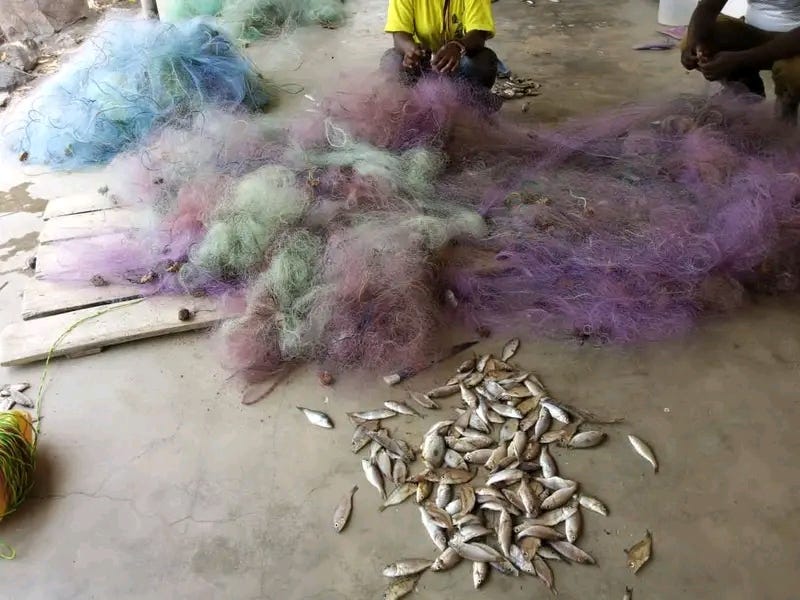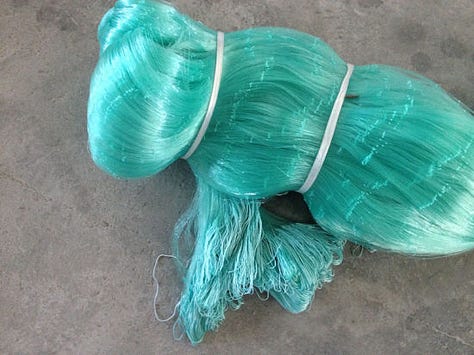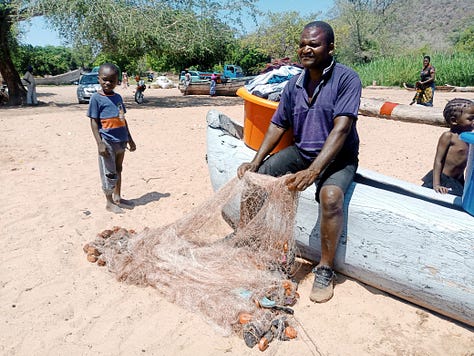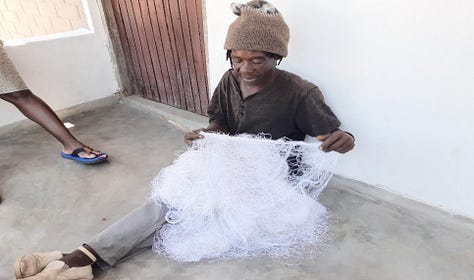CRACKDOWN - Mangochi district takes action on monofilament nets
The crackdown on monofilament nets is a crucial step towards ensuring sustainable fisheries resources and restoring aquatic ecosystems. These deadly and destructive nets and are non-biodegradable

MANGOCHI, Malawi (Planet Defence) – Fishermen in the area of Senior Chief Nankumba in Mangochi have implemented a ban on the use of monofilament gears following a massive campaign aimed at curbing the use of these destructive nets on fish species and the aquatic ecosystem of Lake Malawi, writes Elijah Katantha in the Lake shore district of Mangochi.
Interestingly, some fishing communities in Balamanja, Nsumbi, Malabwe, and Nkope, who previously used illegal monofilament nets, have now transitioned to using multifilament nets, which comply with recommended fishing practices according to fisheries regulations.
Arnold Issa, one of the fishers, stated that the decision to switch nets came after attending several fisheries conservation meetings organized by the Balamanja Beach Village Committee (BVC). "I now understand the destructive nature of this net; it not only kills fish but also persists in the water for many years without decomposing," Issa explained in an interview.
Issa admitted to using monofilament nets, which are illegal as per fisheries rules, since 2019. His justification was their affordability and availability in Monkey Bay.
He further explained that he now purchases 6000 meters of multifilament nets with a mesh size of 3.5 inches, which he uses for almost a year without needing replacements. This is a significant change compared to the past when he bought monofilament nets every three months.
According to Issa, there's a marked difference in catches between multifilament and monofilament fishing nets. He highlighted the advantages of using multifilament nets, stating that they are more cost-effective in the long run. "My life has completely changed since I switched to multifilament fishing gear. The catches are bigger, fetching higher market prices compared to the smaller fish caught using monofilament nets," Issa emphasized.



Issa has actively joined Balamanja BVC members during awareness meetings on closed fishing seasons and offers advice to fellow fishers on the adverse effects of using illegal fishing gear, particularly monofilament nets.
The Fisheries Department in Mangochi district, with support from partners such as RIPPLE Africa implementing the Fish Conservation Project and Community Initiative for Self-Reliance (CISER) implementing the REFRESH Project in Mangochi district, has played a pivotal role in enforcing fisheries regulations.
Through RIPPLE African and its partners, a District Task Force has been established to crack down on Illegal, Unregulated, and Unreported (IUU) fishing, especially concerning the use of monofilament nets on Lake Malawi.
This task force comprises representatives from fishing net sellers, Mangochi Civil Society Organizations Network, Mangochi District Fisheries Officer, the Magistrate Court (Judiciary), Police, Trade, District Information Office (DIO), Office of the President and Cabinet (OPC), District Community Development Office (DCDO), Agriculture Service Committee, Malawi Revenue Authority (MRA), District Agriculture Extension Coordinating Committee (DAECC), and Immigration.


